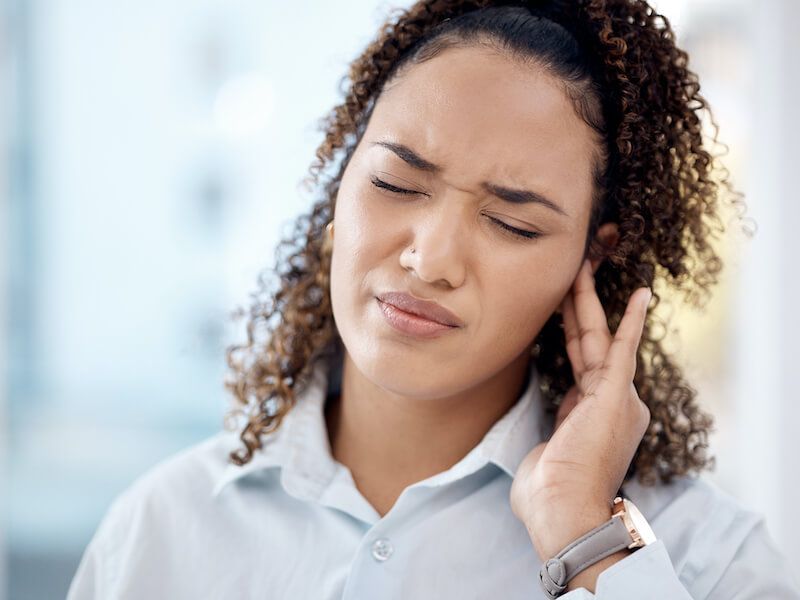Muffled Hearing: Causes and Remedies

Muffled hearing can present for a wide variety of reasons. In the majority of instances, this condition is temporary. In other instances, muffled hearing can be a harbinger of more substantial hearing-related problems. That’s because, in general, hearing loss is a gradually progressing condition. Symptoms appear gradually over a long time period.
Typically, one of the first recognizable symptoms is a sense that sounds feel muffled, distorted, or quieter. However, it’s essential to mention that muffled hearing in and of itself is not always an indication of permanent hearing loss. Every year millions of individuals experience muffled hearing.
You might be wondering: when should I be worried about muffled hearing? Generally, the answer varies. Finding the right treatment for your muffled hearing depends on recognizing the underlying cause. Timely solutions can sometimes help get your hearing back to normal, or, at least reduce possible harm. You will be able to go back to enjoying the sounds of your life after you get us to assist you with some successful treatments.
Muffled Hearing – what exactly is it?
Muffled hearing happens when sound is not able to travel through your outer, middle, and inner ear in the way that it ordinarily does. A very noticeable decrease in sound fidelity is the outcome. Hearing won’t be completely gone with muffled hearing but things will sound garbled and quieter. Hearing speech and language can be particularly tough.
In many instances, and depending on the root cause, muffled hearing can be associated with a sense of fullness or stuffiness in your ears. Many people have experienced this feeling temporarily, for example, when they have a cold or when they are flying. Muffled hearing isn’t always accompanied by this feeling, however.
What causes muffled hearing?
Muffled hearing can be caused by all kinds of problems. Determining the underlying cause of your muffled hearing can be essential in developing an effective treatment plan. Here are a few of the most prevalent causes:
- Earwax buildup : Usually, earwax is a positive thing. It helps keep your ear canal healthy. However, excessive earwax can eventually cause muffled hearing (or even hearing loss). This earwax can usually be loosened up by utilizing a couple of drops of hydrogen peroxide. Never try to dislodge stuck earwax with a cotton swab which will only push the wax further up into the ear canal. If the issue lingers, come in and see us.
- Age-associated hearing loss : Most individuals will experience decreasing hearing as they age. After all, there are few senses as sharp when you are 80 as they were when you are 18. Over time, muffled hearing can be the consequence of this natural decline of your ability to hear.
- Sensorineural hearing loss : In some cases, muffled hearing can be the result of noise-related hearing loss. This type of hearing loss is, regrettably, normally irreversible. One of the first recognizable symptoms is muffled hearing; but by the time you notice the distorted sounds, damage to your stereocilia has likely already occurred. You should find treatment promptly to avoid your hearing growing substantially worse quickly.
- Travel : Altitude changes, such as when you’re on a plane, can cause a feeling of muffled ears. Your hearing will go back to normal rather quickly once your physical conditions return to normal.
- Infection : Sometimes, problems like infections (including sinus infections or ear infections) can result in swelling in the ear canal (this is particularly true with ear infections). This will diminish your hearing ability by causing the ear canal to swell shut. Once the underlying infection goes away, any inflammation it caused should also clear.
- Meniere’s Disease : Meniere’s Disease is a chronic balance and hearing issue. Dizziness, balance issues, tinnitus, and muffled ears will develop over time because of this disease. The symptoms of Menier’s disease can be managed but not cured.
Depending on the root cause, the exact symptoms of muffled hearing will differ.
Can muffled hearing be cured?
Not all forms of muffled hearing can be cured. The treatment for your muffled hearing will change depending on the base cause. We might use some specialized tools to help clear out your ear canal if, for example, earwax buildup is at the root of your muffled hearing. Muffled hearing caused by an ear infection will likely clear up once the infection has been addressed, so antibiotics are frequently prescribed.
Symptom management is generally the strategy when you have sensorineural hearing loss rather than a cure. That’s because there’s no cure for sensorineural hearing loss. But it is possible to control symptoms. There might be several strategies to this treatment including a set of hearing aids.
Hearing aids can help you remain connected to loved ones and go about your day-to-day activities without a substantially noticeable effect, particularly when this process is started quickly.
How to steer clear of muffled hearing in the first place
No matter what you do, certain kinds of muffled hearing can’t be avoided. For example, ear infections and sinus infections are hard to easily avoid.
Getting your hearing examined, however, can help identify any causes of muffled hearing and can help avoid any long-term hearing loss that may be developing. These examinations can help you stay on top of your hearing health and get treatment promptly.


